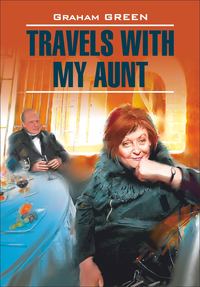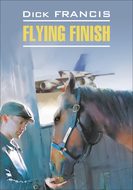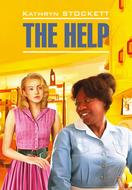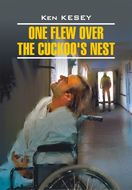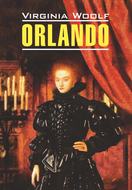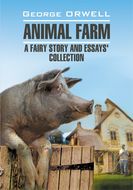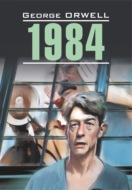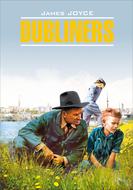Kitabı oku: «Travels with my aunt / Путешествие с тетушкой. Книга для чтения на английском языке», sayfa 3
Chapter 5
Brighton was the first journey I undertook in my aunt’s company and proved a bizarre foretaste of much that was to follow.
We arrived in the early evening, for we had decided to spend the night. I was surprised by the smallness of her luggage, which consisted only of a little white leather cosmetics case which she called her baise en ville42. I find it difficult myself to go away for a night without a rather heavy suitcase, for I am uneasy if I have not at least one change of suit and that entails also a change of shoes. A change of shirt a change of underclothes and of socks are almost an essential to me, and taking into consideration the vagaries of the English climate, I like to take some woollens just in case. My aunt looked at my suitcase and said, “We must take a cab. I had hoped we could walk.”
I had booked our rooms at the Royal Albion because my aunt wished to be near the Palace Pier and the Old Steine. She told me, incorrectly I think, that this was named after the wicked marquess of Vanity Fair43. “I like to be at the centre of all the devilry”, she said, “with the buses going off to all those places.” She spoke as though their destinations were Sodom and Gomorrah rather than Lewes and Pathcam and Littlehampton and Shoreham. Apparently she had come first to Brighton when she was quite a young woman, full of expectations which I am afraid were partly fulfilled.
I thought I would have a bath and a glass of sherry, a quiet dinner in the grill, and an early bedtime, so that we would both be rested for a strenuous morning on the front and in the Lanes, but my aunt disagreed. “We don’t want dinner for another two hours,” she said, “and first I want you to meet Hatty if Hatty’s still alive.”
“Who is Hatty?”
“We worked together once with a gentleman called Mr. Curran.”
“How long ago was that?”
“Forty years or more.”
“Then it seems unlikely…”
“I am here,” Aunt Augusta said firmly, “and I got a card from her the Christmas before last.”
It was a grey leaden evening with an east wind blowing on our backs from Kemp Town. The sea was rising and the pebbles turned and ground under the receding waves. Ex-President Nkrumah looked out at us from the window of the waxworks, wearing a grey suit with a Chinese collar. My aunt paused and regarded him, I thought a little sadly. “I wonder where Wordsworth is now,” she said.
“I expect you’ll hear from him soon44.”
“I very much doubt it,” she said. “My dear Henry,” she added, “at my age one has ceased to expect a relationship to last. Think how complicated life would be if I had kept in touch with all the men I have known intimately. Some died, some I left, a few have left me. If they were all with me now we would have to take over a whole wing of the Royal Albion. I was very fond of Wordsworth while he lasted, but my emotions are not as strong as they once were. I can support his absence, though I may regret him for a while tonight. His knackers were superb.” The wind took my hat and tossed it against a lamp-post. I was too surprised by her vulgarity to catch it, and my aunt laughed like a young woman. I returned, brushing it down, but Aunt Augusta still lingered at the waxworks.
“It’s a kind of immortality,” she said.
“What is?”
“I don’t mean the waxworks here in Brighton, they are rather a job lot, but in Madame Tussaud’s45. With Crippen46 and the Queen”.
“I’d rather have my portrait painted.”
“But you can’t see all round a portrait, and at Tussaud’s they take some of your own clothes to dress you in, or so I’ve read. There’s a blue dress of mine I could easily spare. …Oh well,” she said with a sigh, “it’s unlikely I’ll ever be famous like that. Idle dreams…” She walked on, I thought a little cast down. “Criminals,” she said, “and queens and politicians. Love is not highly regarded, except for Nell Gwynn47 and the Brides in the Bath”.
We came to the saloon doors of the Star and Garter and my aunt suggested that we take a drink. The walls were covered with inscriptions of a philosophic character: Life is a one-way street and there’s no coming back; Marriage is a great Institution for those who like Institutions; You will never persuade a mouse that a black cat is lucky. There were old programmes too and photographs. I ordered a sherry and my aunt said she would like a port and brandy. When I turned round from the bar I saw her examining a yellowed photograph. There was an elephant and two performing dogs drawn up in front of the Palace Pier behind a stout man in a tail-coat wearing a top hat and a watch chain, and a shapely young woman in tights stood beside him carrying a carriage whip. “There’s Curran,” my aunt said. “That’s how it all began.” She pointed at the young woman. “And there’s Hatty. Those were the days.48”
“Surely you never worked in a circus, Aunt Augusta?”
“Oh no, but I happened to be there when the elephant trod on Curran’s toe, and we became very close friends. Poor man, he had to go to hospital, and when he came out, the circus had gone on without him to Weymouth. Hatty too, though she came back later when we were established.”
“Established at what?”
“I’ll tell you one day, but now we have to find Hatty.” She drained her port and brandy, and out we went into the cold blow of the wind. Just opposite was a stationer’s which sold comic postcards and she stopped there to inquire: the metal stands for the cards rattled and strained and turned like a windmill. I noticed a card with a bottle of Guinness on it, and a fat woman in a snorkel floating face down. The legend read Bottoms Up!49 I was looking at another of a man in hospital saying to a surgeon, “But I said circumcision, doctor,” when my aunt came out. “It’s just here,” she said. “I knew I wasn’t far wrong,” and in the window of the very next house a card in front of some net curtains read HATTY’s TEAPOT. BY APPOINTMENT ONLY. There were photographs by the door of Marilyn Monroe and Frank Sinatra and the Duke of Edinburgh which seemed to have been signed by their subjects, although it seemed unlikely in the case of the Duke.
We rang the bell and an old lady answered it. She was wearing a black evening dress and a lot of jet objects jangled when she moved. “You’re too late,” she said sharply.
“Hatty,” said my aunt.
“I close at six-thirty sharp except by special appointment.”
“Hatty, it’s Augusta.”
“Augusta!”
“Hatty! You haven’t changed a bit.”
But remembering the young girl in tights carrying the whip and looking sideways at Curran, I thought there had been greater changes than my aunt made out.
“This is my nephew Henry, Hatty. You remember about him.” They exchanged a look which I found disturbing. Why should I have been discussed all those years ago? Had she let Hatty into the secret of my birth?
“Come on in, the two of you. I was just going to have a cup of tea – an unprofessional cup of tea,” Hatty added and giggled.
“In here?” my aunt asked, opening a door.
“No dear, that’s the waiting-room.” I just had time to see an engraving by Sir Alma-Tadema of a lot of tall naked ladies in a Roman bathhouse.
“Here’s my den, dear,” Hatty said, opening another door. It was a small overcrowded room, and everything seemed to be covered with fringed mauve shawls, the table, the backs of chairs, the mantel – there was even a shawl dangling from a studio portrait of a stout man whom I recognized as Mr. Curran.
“The Revered,” Aunt Augusta said, looking at it.
“The Revered,” Hatty repeated, and then they both laughed at some secret joke of their own.
“The Rev. for short,” Aunt Augusta said, “but that, of course, was only a coincidence. You remember how we explained it to the police. They’ve still got a photo of him, Hatty, stuck up in the Star and Garter.”
“I haven’t been there for years,” Hatty said. “I’m off the hard liquor.”
“You are there and the elephant too,” Aunt Augusta said. “Can you remember the elephant’s name?”
Hatty was putting out two more cups from a china cabinet. There was a fringed shawl over that too. She said, “It wasn’t a common name like Jumbo. Something classical. How one forgets things50, Augusta, at our age”.
“Was it Caesar?”
“No, it wasn’t Caesar. Do you take sugar, Mr. – ?”
“Call him Henry, Hatty.”
“One lump,” I said.
“Oh dear, oh dear, I had such a good memory once.”
“The water’s boiling, dear.”
The kettle was on a spirit ring close to a big brown teapot. She began to pour out.
“Oh, I quite forgot the strainer,” she said.
“Never mind, Hatty.”
“It’s because of my clients. I never strain theirs, so I forget when I’m alone.”
There was a plate of ginger-snaps and I accepted one for politeness’ sake. “From the Old Steine,” Aunt Augusta told me. “Ye Olde Bunne Shoppe. You don’t get gingersnaps like that anywhere else in the world.”
“And now they have turned it into a betting shop,”
Hatty said. “Pluto, dear? Was it Pluto?”
“No, I’m sure it wasn’t Pluto. I think it began with a T.”
“I can’t think of anything classical beginning with T.”
“There was a point to his name.”
“There certainly was.”
“Historical.”
“Yes.”
“You remember the dogs, dear. They are in the photo too.”
“It was them gave Curran the idea.”
“The Revered,” Aunt Augusta repeated again, and they laughed in unison at their private memory. I felt very much alone, so I took another ginger-snap.
“The boy has a sweet tooth51”, Hatty remarked.
“To think that little shop in the Old Steine survived two great wars.”
“We’ve survived,” Hatty replied, “but they aren’t turning us into betting shops.”
“Oh, it will need an atom bomb to destroy us,” Aunt Augusta said.
I thought it was time to speak. “The situation in the Middle East is pretty serious,” I said, “judging from today’s Guardian.”
“You can never tell,” Hatty said, and they were both for a while buried in thought. Then my aunt picked out a tealeaf, put it on the back of her hand and slapped it with the other; it clung obstinately to a vein which was surrounded by what my mother used to call grave-marks.
“Can’t get rid of the fellow,” Aunt Augusta said. “I hope he’s tall and handsome.”
“That isn’t a stranger,” Hatty corrected her. “That’s the thought of a departed you can’t get out of your mind.”
“Living or dead?”
“It could be either. How stiff does he feel?”
“If he’s living I suppose it could be poor Wordsworth.”
“Wordsworth is dead, dear,” Hatty said, “a very long time ago.”
“Not my Wordsworth. It’s stiff as wood. I wonder who a dead one could be.”
“Poor Curran perhaps.”
“I have thought a lot about him since I came to Brighton.”
“Would you like me to do a professional cup, dear, for you and your friend?”
“Nephew,” Aunt Augusta corrected Hatty in her turn. “It would be fun, dear.”
“I’ll make another pot. The leaves have to be fresh and I use Lapsang Souchong52 professionally, though I drink Ceylon – Lapsang gives big leaves and good results.”
When she came back after washing the pot and our cups my aunt said, “You must let us pay.”
“I wouldn’t dream of it, dear, not after all we’ve been through together.”
“With the Revered.” They giggled again.
Hatty poured in the boiling water. She said, “I don’t let the pot draw. The leaves speak better fresh.” She filled our cups. “Now toss the tea away, dear, in this basin.”
“I’ve got it,” my aunt said. “Hannibal.”
“Who’s Hannibal?”
“The elephant that trod on Curran’s toe.”
“I do believe you’re right, dear.”
“I was watching the tea and it came to me suddenly in a flash.”
“I often notice that with the leaves. Things come back. You are watching the leaves and things come back.”
“I suppose Hannibal’s dead too.”
“You can’t tell, dear, with elephants.”
She picked up my aunt’s cup and studied it closely. “It’s interesting,” she said, “very interesting.”
“Bad or good?”
“A bit of both.”
“Just tell me the good.”
“You are going to do a lot of travelling. With another person. You are going to cross the ocean. You are going to have many adventures.”
“With men?”
“That the leaves don’t say, dear, but knowing you as I do, it wouldn’t surprise me. You will be in danger of your life and liberty on more than one occasion.”
“But I’ll come through?”
“I see a knife – or it might be a syringe.”
“Or it could be something else, Hatty – you know what I mean?”
“There is some mystery in your life.”
“That’s nothing new.53”
“I see a lot of confusion – a lot of running about this way and that. I’m sorry, Augusta, but I can’t see any peace at the close. There’s a cross. Perhaps you find religion. Or it could be a double-cross.”
“I’ve always been interested in religion,” my aunt said, “ever since Curran.”
“Or it could be a bird, of course – a vulture perhaps. Keep away from deserts.” Hatty gave a sigh. “Things don’t come to me so easily as they once did. I exhaust myself with strangers.”
“But you’ll take one look at Henry’s cup too, dear, won’t you? Just one look.”
She poured my tea away and looked in the cup. “Men are difficult,” she said. “They have so many occupations beyond a woman’s knowledge and that affects the interpretation. I had a client once who said he was a bevel-edger. I don’t know what he meant. Are you an undertaker?”
“No.”
“There’s something that looks like an urn. Do you see it there? On the left of the handle. That’s the recent past.”
“It might be an urn,” I said, looking.
“You will do a lot of travelling.”
“That’s not very likely. I’ve always been rather stay-at-home. It’s quite an adventure for me coming as far as Brighton.”
“It’s in the future you’re going to travel. Across the ocean. With a lady friend.”
“Perhaps he’s coming with me,” Aunt Augusta said. “It’s possible. The leaves don’t lie. There’s a round thing like a target. There’s a mystery in your life too.”
“I’ve only just discovered that,” I said.
“I see a lot of confusion too and running about. Just like in Augusta’s cup.”
“That’s most unlikely,” I said. “I lead a very regular life. A game of bridge once a week at the Conservative Club. And my garden, of course. My dahlias.”
“The target might be a flower,” Hatty admitted. “Forgive me. I’m tired. I’m afraid it was not a very good reading.”
“It was most interesting,” I told her for politeness’ sake. “But of course, I’m no believer.”
“Have another ginger-snap,” Hatty said.
Chapter 6
We had dinner that night at the Cricketers’, a small public house nearly opposite a second-hand bookseller, where I saw a complete set of Thackeray for sale at a very reasonable price. I thought it would go well on my shelves below my father’s edition of the Waverly novels. Perhaps tomorrow I would come back and buy it. The thought gave me a warm feeling towards my father, a sense of something in common. I too would start at Volume I and continue to the end, and by the time that last volume was finished it would be time to begin again. Too many books by too many authors can be confusing, like too many shirts and suits. I like to change my clothes as little as possible. I suppose some people would say the same of my ideas, but the bank had taught me to be wary of whims. Whims so often end in bankruptcy.
When I wrote that we had dinner at the Cricketers’, it would have been more correct to say we ate a substantial snack. There were baskets of warm sausages on the bar, and we helped ourselves and washed the sausages down with draught Guinness. I was surprised by the number of glasses my aunt could put down and feared a little for her blood pressure.
After her second pint she said, “It was odd about that cross. In the leaves I mean. I’ve always been interested in religion – ever since I knew Curran.”
“What church do you attend?” I asked. “Didn’t you tell me you were a Roman Catholic?”
“I call myself that for convenience,” she said. “It belongs to my French and Italian periods. After I left Curran. I suppose he had influenced me, and then all the girls I knew were Catholic and I didn’t like to look superior. I expect you’d be surprised to hear that we ran a church once ourselves – me and Curran, here in Brighton.”
“‘Ran’? I don’t understand.”
“It was the performing dogs that gave us the idea. Two of them came to see Curran in hospital before the circus moved on. It was visiting day and there were a lot of women around to see their husbands. At first the dogs weren’t allowed into the ward. There was quite a fuss, but Curran got round matron, telling her they weren’t ordinary dogs, they were human dogs. Bathed in disinfectant they were, he told her, every dog, before they were allowed to give a performance. It wasn’t true, of course, but he was very convincing. They came up to the bed, wearing their pointed hats and pierrot collars, and each gave Curran a paw to shake and touched his face with its nose like an Eskimo. Then they were taken quickly away in case the doctor might appear. You should have heard those women. ‘The darlings, the sweet little doggies.’ It was lucky neither of them had raised a leg. ‘Just like humans.’ One woman said, ‘You can’t tell me that dogs haven’t got souls.’ Another one asked, ‘Are they gentleman doggies or lady doggies?’ as though she had been too refined to look. ‘One of each,’ Curran said, and just out of devilry he added, ‘They are married as a matter of fact.’ ‘Oh, isn’t that too sweet? Oh, the darlings. And have any little doggies come yet?’ ‘Not yet,’ Curran said. ‘You see, they have only been married a month. At the doggies’ church in Potters Bar.’ ‘Married in church?’ they squealed and I really thought he’d gone too far, but how they swallowed it down! They all gathered round Curran’s bed and left their husbands abandoned. Not that the husbands minded. Visiting day is always a horrible reminder of home to a man.”
My aunt took another sausage and ordered another Guinness. “They all wanted to know about the church in Potters Bar. ‘And to think,’ one said, ‘we have to leave our doggies at home when we go to Saint Ethelburga’s. My dog is as good a Christian as the vicar is with his raffles and his tea-fights.’ ‘Once a year,’ Curran said, ‘they have a collection of dog biscuits. To help the poor strays.’ When at last they left us alone and went back to their husbands I said, ‘You’ve started something,’ and ‘Why not?’ Curran said.”
My aunt put down her glass and asked the woman behind the bar, “Did you ever hear of the doggies’ church?”
“I seem to remember hearing something, but it was donkey’s years ago54, wasn’t it? Long before my time. Somewhere in Hove, wasn’t it?”
“No, dear. Not a hundred yards from where you are standing now. We used to come to the Cricketers’ after the service. The Rev. Curran and me.”
“Didn’t the police interfere or something?”
“They tried to make out that he had no right to the title of Rev. But we pointed out that it stood for Revered and not Reverend in our church, and we didn’t belong to the established. They couldn’t touch us, we were breakaways like Wesley55, and we had all the dog-owners of Brighton and Hove behind us – they even came over from as far as Hastings. The police tried to get us once under the Blasphemy Act, but nobody could find any blasphemy in our services. They were very very solemn. Curran wanted to start the churching of bitches after the puppies came, but I said that was going too far – even the Church of England had abandoned churching. Then there was the question of marrying divorced couples – I thought it would treble our income, but there it was Curran who stood firm. ‘We don’t recognize divorce,’ he said, and was quite right – it would have sullied the sentiment.”
“Did the police win in the end?” I asked.
“They always do. They had him up for speaking to girls on the front, and a lot was said in court that wasn’t apropos. I was young and angry and uncomprehending, and I wouldn’t help him any more. No wonder he abandoned me and went to look for Hannibal. No one can stand not being forgiven. That’s God’s privilege.”
We left the Cricketers’ and my aunt took a turning this way and a turning that until we came to a shuttered hall and a sign which read: TEXT FOR THE WEEK. “If thou hast run with the footmen, and they have wearied thee, Then how canst thou contend with horses? Jeremiah, 12,” I can’t say that I understood the meaning very well, unless it was a warning against Brighton races, but perhaps the ambiguity was the attraction. The sect, I noticed, was called The Children of Jeremiah.
“This was where we held our services,” Aunt Augusta said. “Sometimes you could hardly hear the words for the barking. ‘It’s their form of prayer,’ Curran would say, ‘let each pray after his own fashion,’ and sometimes they lay there quite peacefully licking their parts. ‘Cleansing themselves for the House of the Lord,’ Curran would say. It makes me a little sad to see strangers here now. And I never much cared for the prophet Jeremiah.”
“I know little about Jeremiah.”
“They sank him in the mud,” Aunt Augusta said. “I studied the Bible very carefully in those days, but there was little that was favourable to dogs in the Old Testament. Tobias took his dog with him on his journey with the angel, but it played no part in the story at all, not even when a fish tried to eat Tobias. A dog was an unclean beast, of course, in those times. He only came into his own with Christianity. It was the Christians who began to carve dogs in stone in the cathedrals, and even while they were still doubtful about women’s souls they were beginning to think that maybe a dog had one, though they couldn’t get the Pope to pronounce one way or the other, nor even the Archbishop of Canterbury. It was left to Curran.”
“A big responsibility,” I said. I couldn’t make out whether she was serious about Curran or not.
“It was Curran who set me reading theology,” Aunt Augusta said. “He wanted references to dogs. It wasn’t easy to find any – even in Saint Francis de Sales. I found lots about fleas and butterflies and stags and elephants and spiders and crocodiles in Saint Francis but a strange neglect of dogs. Once I had a terrible shock. I said to Curran, ‘It’s no good. We can’t go on. Look what I’ve just found in the Apocalypse. Jesus is saying who can enter the city of God. Just listen to this – “Without are dogs and sorcerers and whoremongers and murderers and idolaters, and whosoever loveth or maketh a lie.” You see the company dogs are supposed to keep?”
“‘It proves our point,’ Curran said. ‘Whoremongers and murderers and the rest – they all have souls, don’t they? They only have to repent, and it’s the same with dogs. The dogs who come to our church have repented. They don’t consort any more with whoremongers and sorcerers. They live with respectable people in Brunswick Square or Royal Crescent.’ Do you know that Curran was so little put off by the Apocalypse he actually preached a sermon on that very text, telling people that it was their responsibility to see that their dogs didn’t backslide? ‘Loose the lead and spoil the dog56’, he said. ‘There are only too many murderers in Brighton and whoremongers at the Metropole all ready to pick up what you loose. And us for sorcerers —’ Luckily Hatty, who was with us by that time, had not yet become a fortune-teller. It would have spoilt the image.”
“He was a good preacher?”
“It was music to hear him,” she said with happy regret, and we began to walk back towards the front; we could hear the shingle turning over from a long way away. “He was not exclusive,” my aunt said. “For him dogs were like the House of Israel, but he was an apostle also to the Gentiles – and the Gentiles, to Curran, included sparrows and parrots and white mice – not cats, cats he always regarded as Pharisees. Of course no cat dared come into the church with all those dogs around, but there was one who used to sit in the window of a house opposite and sneer when the congregation came out. Curran excluded fish too – it would be too shocking to eat something with a soul, he said. Elephants he had a very great feeling for, which was generous of him considering Hannibal had trodden on his toe. Let’s sit down here, Henry. I always find Guinness a little tiring.”
We sat down in a shelter. The lights ran out to sea along the Palace Pier and the edge of the water was white with phosphorescence. The waves were continually pulled up along the beach and pulled back as though someone were making a bed and couldn’t get the sheet to lie properly. A bit of pop music came from the dance hall standing there like a blockade ship a hundred yards out. This trip was quite an adventure, I thought to myself, little knowing how small a one it would seem in retrospect.
“I found a lovely piece about elephants once in Saint Francis de Sales,” Aunt Augusta said, “and Curran used it in his last sermon after all that business with the girls had upset me. I really think what he wanted was to tell me it was me he loved, but I was a hard young woman in those days and I wouldn’t listen. I’ve always kept the piece though in my purse and, when I read it, it’s not the elephant that I see now, it’s Curran. He was a fine big fellow – not as big as Wordsworth but a good deal more sensitive.”
She fumbled in her bag and found her purse. “You read it to me, dear, I can’t see properly in this light.”
I held the rather yellowed creased paper at an angle to catch one of the lights of the front. It wasn’t easy to read, though my aunt’s handwriting was young and bold, because of the creases. “‘The elephant,’” I read, “‘is only a huge animal, but he is the most worthy of beasts that lives on the earth, and the most intelligent. I will give you an example of his excellence; he…’” The writing ran along a crease and I couldn’t read it, but my aunt chimed gently in. “‘He never changes his mate and he tenderly loves the one of his choice.’ Go on, dear.”
“‘With whom,’” I read, “‘nevertheless he mates but every third year, and then for five days only and so secretly that he has never been seen to do so.’”
“He was trying to explain,” my aunt said, “I am sure of it now, that if he had been a little slack in his attentions57, it was only because of the girls – he didn’t love me less.”
“‘But he is to be seen again on the sixth day, on which day, before doing anything else, he goes straight to some river wherein he bathes his whole body, for he has no desire to return to the herd until he has purified himself.’”
“Curran was always a clean man,” my aunt said. “Thank you, dear, you read it very well.”
“It doesn’t seem very applicable to dogs,” I said.
“He turned it so beautifully that no one noticed, and it was really directed at me. I remember he had a special dogs’ shampoo which had been blessed at the altar on sale outside the church door that Sunday.”
“What became of Curran?”
“I’ve no idea,” Aunt Augusta said. “He must have left his church, for he couldn’t have carried on without me. Hatty hadn’t the right touch for a deaconess. I dream of him sometimes – but he would be ninety years old now, and I find it hard to picture him as an old man. Well, Henry, I think it is time for us both to sleep.”
All the same, I found sleep difficult to attain, even in my comfortable bed at the Royal Albion. The lights of the Palace Pier sparkled on the ceiling, and round and round in my head went the figures of Wordsworth and Curran, the elephant and the dogs of Hove, the mystery of my birth, the ashes of my mother who was not my mother, and my father asleep in the bath. This was not the simple life which I had known at the bank, where I could judge a client’s character by his credits and debits. I had a sense of fear and exhilaration too, as the music pounded from the Pier and the phosphorescence rolled up the beach.
baise en ville – (фр.) дорожный несессер, косметичка
[Закрыть]
Vanity Fair – «Ярмарка тщеславия», роман В. Теккерея (1811–1863)
[Закрыть]
you’ll hear from him soon – (разг.) он скоро даст о себе знать
[Закрыть]
Madame Tussaud – имеется в виду музей восковых фигур, принадлежавший мадам Тюссо (1760–1850), в котором демонстрируются отлитые из воска фигуры известных людей, в том числе тех, кто был гильотинирован во времена Французской революции)
[Закрыть]
Crippen – доктор Криппен (1862–1910), американский доктор, убивший свою жену и попытавшийся скрыться из Англии в Америку на корабле
[Закрыть]
Nell Gwynn – Нелл Гвин (1650–1687), английская актриса, возлюбленная короля Карла II
[Закрыть]
Those were the days. – (разг.) Хорошее было время.
[Закрыть]
Bottoms Up! – (разг.) Пей до дна!
[Закрыть]
How one forgets things – (разг.) Память совсем плохая стала
[Закрыть]
has a sweet tooth – (разг.) сластена, сладкоежка, лакомка
[Закрыть]
Lapsang Souchong – сорт китайского чая
[Закрыть]
That’s nothing new. – (зд.) Подумаешь, удивила.
[Закрыть]
it was donkey’s years ago – (разг.) это же было сто лет назад (в незапамятные времена)
[Закрыть]
Wesley – Чарльз Уэсли (1707–1788), английский евангелист, писал гимны; Джон Уэсли (1703–1791), английский теолог, евангелист, основатель методистской церкви
[Закрыть]
Loose the lead and spoil the dog – видоизмененная пословица «Spare the rod and spoil the child», Пожалеешь розгу – испортишь ребенка
[Закрыть]
if he had been a little slack in his attentions – (разг.) если он и был неразборчив в своих привязанностях
[Закрыть]
